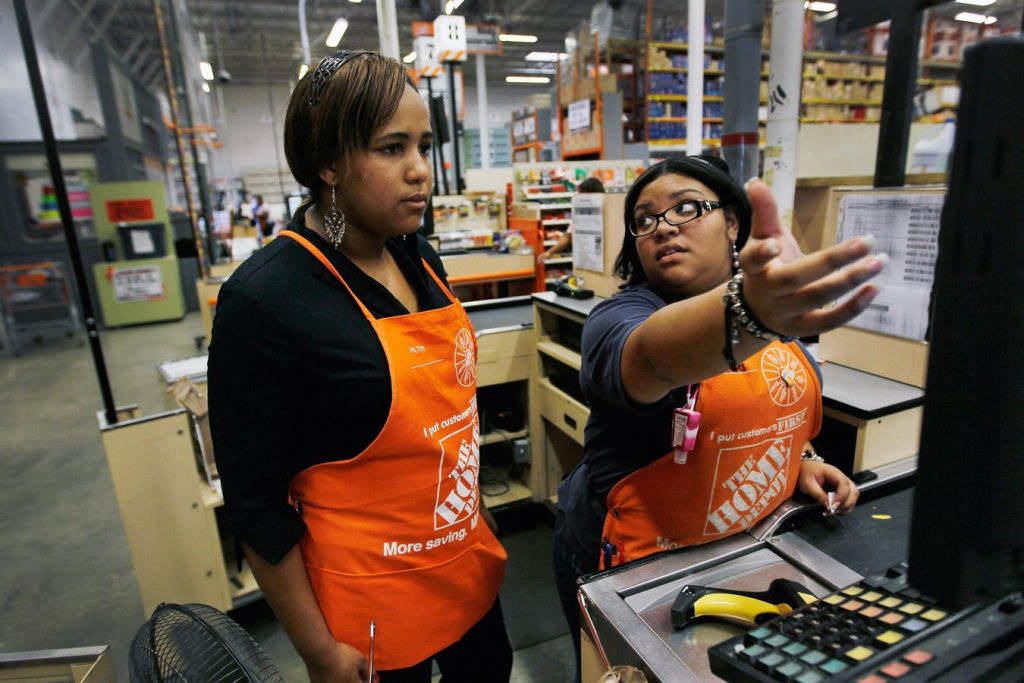Home Depot, a major retailer, has announced that it will require all its corporate employees to work an eight-hour shift every quarter. This policy is aimed at providing hands-on experience for corporate staff and is seen as a learning opportunity. However, the success of this program will depend on the implementation and training provided to corporate employees to ensure their effectiveness in retail settings. This move by Home Depot is seen as a response to rising labor activism and unionization movements that have been gaining momentum across industries.
In addition to Home Depot, DoorDash has also implemented a similar program requiring corporate employees to complete food deliveries on a monthly basis. The concept of corporate employees working in customer-facing roles is not a common practice in the retail sector, but it is seen as a way to bridge the gap between corporate offices and the workforce on the ground. Unionization movements have been on the rise, with employees from companies like Apple, CVS, and Amazon recently voting to unionize. This shift in labor dynamics is reshaping how companies approach their workforce management strategies.
The importance of addressing women’s health issues in the workplace is highlighted by the annual Menopause in the Workplace report released by Carrot Fertility. The report revealed that a significant number of Millennial women are already experiencing symptoms related to perimenopause, and this is anticipated to be a major challenge in the future. Employee advocacy groups within companies are playing a crucial role in bringing awareness to such issues and pushing for better support and benefits for women going through menopause. The conversation around menopause and fertility benefits is starting to gain traction within the workplace.
The issue of menopause and fertility benefits is not just limited to women; it also extends to men who may be experiencing hormonal changes as they age. Men’s involvement in these conversations is crucial for promoting better healthcare practices and overall well-being in the workplace. Companies like Carrot Fertility are working towards creating inclusive healthcare programs that support both women and men in addressing their health needs. The involvement of men in these discussions is not only beneficial for women but also contributes to better business outcomes.
In the world of work, Boeing is currently facing challenges with its striking workers, as the company recently filed an unfair labor practice charge against the union representing them. Additionally, Boeing announced layoffs amounting to about 10% of its workforce, with a focus on white-collar staff. Private equity investments have been linked to a decrease in female leadership within companies, with the percentage of women in leadership roles dropping significantly during investment periods. Social security benefits are set to increase by 2.5% in 2025 to reflect cost-of-living adjustments, benefiting retirees.
Overall, the changing landscape of the workforce, with an emphasis on employee well-being, diversity, and unionization, is reshaping how companies approach their workforce management strategies. The involvement of employees in advocating for better workplace practices and benefits, such as menopause and fertility support, is crucial for creating a more inclusive and supportive work environment. Companies like Home Depot and DoorDash are leading the way in implementing programs that provide hands-on experience for corporate employees and bridge the gap between corporate offices and the frontline workforce.













